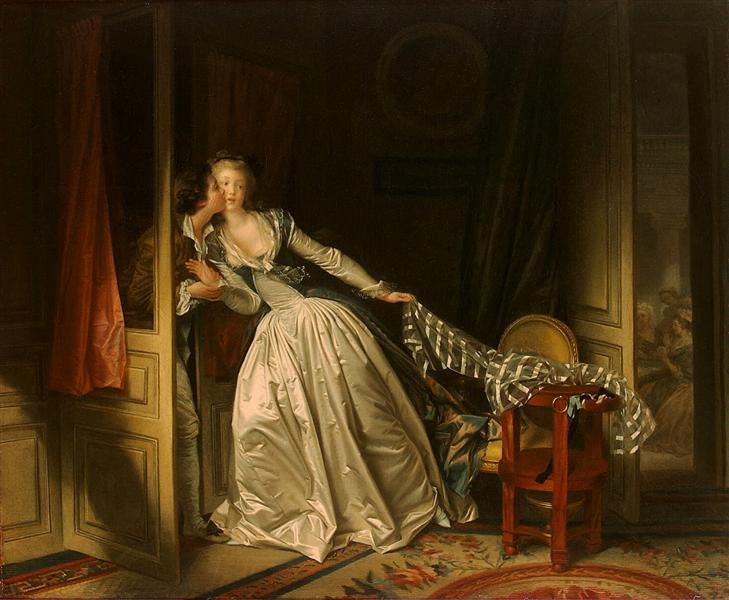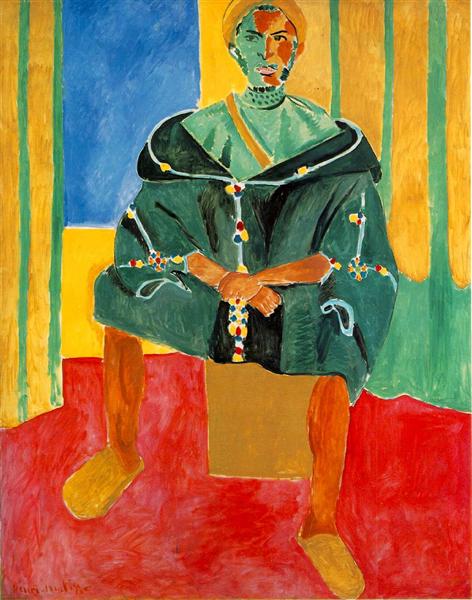
_____________
if you listened to the couple of pieces I
you would’ve indeed recognized, if
even only subconsciously, that the
first work wasn’t composed by the
composer of the other, that different
spirits infused either
a visual representation of the same
thing might be to juxtapose a
contemporary painting of the one
epoch with a corresponding painting
of the other
over a hundred years had passed
– his last piano sonata, incidentally,
he died a short two years later –
was written in 1789, the year of the
French Revolution, a still safe
distance from Vienna, where
Mozart could still cater to an,
however endangered, species
painter, 1732 – 1806, had been doing the
instance, a mere year earlier, see above
meanwhile, over a hundred years later,
inches only away from the First World
War, Matisse is doing in art what
Prokofiev is doing in music, taking the
temperature of his own time, Seated
Riffian (1911 –1912) – a Riffian, a Berber,
a North African tribesman – see below,
to corroborate Prokofiev’s equally
emblematic vision of their shared era
you can hear this in the music
mostly through the difference in the use
of volume, languorous softs, thunderous
louds, but also in the more expansive use
of pace, fast, slow, the rapidity of some
notes, the embrace, the extended caress,
of others, in the later composition
which, in a word, follows the development
of the piano from harpsichord to the
instrument we’re used to today
Mozart still had the harpsichord in his ear,
he was writing for the fortepiano, which
evolved, through the pianoforte, to the
piano we know of today, no flexibility of
pace, no flexibility of volume then, listen,
hear, you can hear it in the juxtaposition
we hear a lot more than we think we
hear
R ! chard
__________

__________

